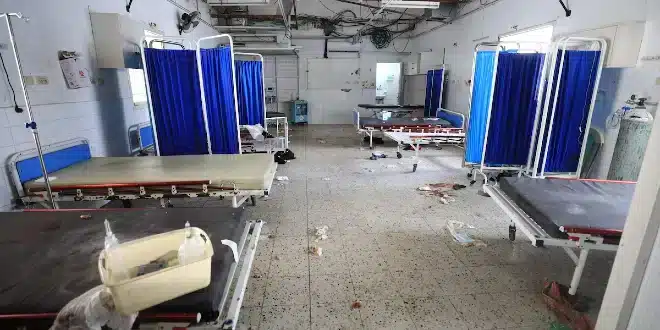Lebanon’s health care system, already weakened by ongoing crises, is now bracing for the possibility of a broader conflict with Israel, according to the country’s health minister in an interview with The Associated Press.
The Israeli military and Hezbollah, Lebanon’s powerful militant group, have been exchanging strikes since the onset of the war in Gaza, with tensions escalating after an Israeli airstrike in a Beirut suburb last month killed a senior Hezbollah commander. Hezbollah has vowed to retaliate, raising concerns of a wider conflict.
Lebanon’s caretaker government, grappling with diplomatic efforts to de-escalate the situation, is trying to prepare for the worst despite facing a strained budget, a divided parliament, and the absence of a president.
“The Lebanese health system has had to adapt to multiple crises,” said caretaker Health Minister Firas Abiad. He explained that health care facilities have had to reduce costs by maintaining minimal inventory, leaving little reserve for emergencies. Now, they have stockpiled up to four months’ worth of essential supplies.
“We hope all these preparations for an emergency will prove unnecessary,” Abiad said, expressing a desire to avoid a broader war. “The best outcome would be that this preparation turns out to be in vain.”
In Gaza, the health care system has been severely damaged, and Abiad stressed that Lebanese authorities are taking the threat of hospital attacks in a broader conflict very seriously.
He noted that nearly two dozen paramedics and health care workers in southern Lebanon have already been killed in Israeli strikes, including those from medical groups linked to Hezbollah and allied organizations that operate in areas with limited state services.
Recent Israeli strikes have reached deeper into Lebanon, and sonic booms from military jets have been heard in Beirut, with much of the border region reduced to rubble.
Lebanon’s health care system was once highly regarded as one of the best in the region. However, the country has faced a series of compounding crises since 2019, including a financial collapse following decades of corruption and mismanagement, the COVID-19 pandemic, the 2020 Beirut Port explosion, and dwindling international aid, which has affected Lebanon’s ability to support over 1 million Syrian refugees.
By 2021, Lebanese hospitals were struggling to function, with severe shortages of medicine and power.
Abiad emphasized the health sector’s resilience in the past, noting that during the Beirut Port explosion, the system managed to treat over 6,000 casualties within 12 hours. “There is a determination within our health care system to provide the necessary care to all who need it,” he said.
However, this resilience may not be enough for Lebanon and its 6 million people. The ongoing financial crisis has left government agencies dependent on humanitarian organizations for financial support and supplies.
Last week, the health ministry received 32 tons of emergency medical aid from the World Health Organization. However, U.N. agencies and other humanitarian groups have had to divert funds from existing programs to support the approximately 100,000 people who have fled southern Lebanon since the Gaza conflict began.
Abiad also pointed out that some issues, like securing fuel for electricity and ambulances, are beyond the ministry’s control, as well as supporting the nearly 800,000 U.N.-registered Syrian refugees in the country.
He stressed that health care resources are insufficient for refugees in particular, urging the international community to take greater responsibility and provide more assistance for this critical issue.


